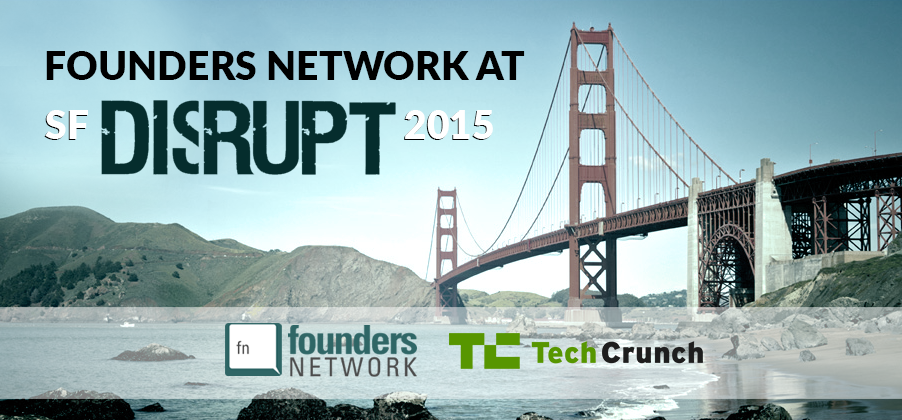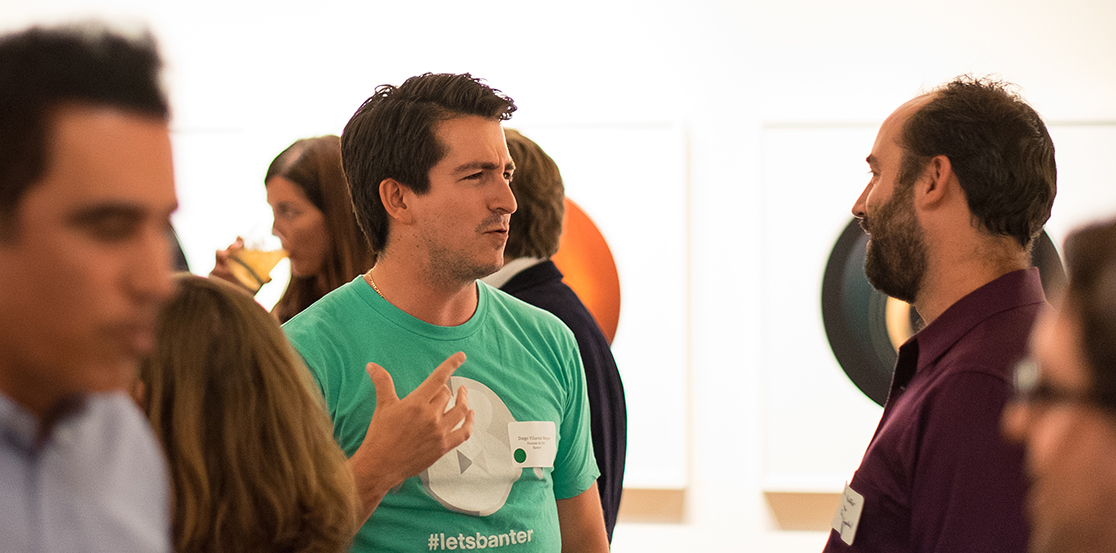
As a startup inches from idea to funding to scaling up, the “mission” you’re working towards can be far out, and even changing, month by month. But values that create a company’s culture? A founder uses those every day. Values are why you’re doing this in the first place, entrepreneurs said at a Founders Network event for funded founders in San Francisco this month.
“I think one of the most important jobs of the founder is to align everybody on the same culture, and prune out those who don’t.”
“Culture is the soul of a company – it’s not what the company says it is, it’s what it actually does,” says Luis Garza (FN July ‘15). He launched his second company, Kinedu, a parenting and child development startup, two years ago. The leadership tips he has to offer other founders certainly draw on his training at Stanford and then Harvard Business School. But it was leading his first company, ADVENIO, through growth across Latin America and partnership with HSBC, citi and other major companies that he really learned how this kind of tactical advice can make a difference for entrepreneurs.
“Culture is something that you just do, not a strategy that you think out and implement. You have to respond on the fly,” Garza says of early stage decisions that add up to a company culture long before a team might have offsites, release swag or the structured “tells” of a company working on it’s culture.
There’s no one right “culture” a founder can read up on and lock in on her first month. Culture is how we show up at work – who we are and how we behave when we’re on the clock. How do leaders treat employees and customers. Who do they promote, and why – most of these decisions are unconscious signals of culture, in the sense that they are reactive.
“Culture is spilling down from the founder’s core beliefs, so what the CEO does is basically replicated,” Garza says.
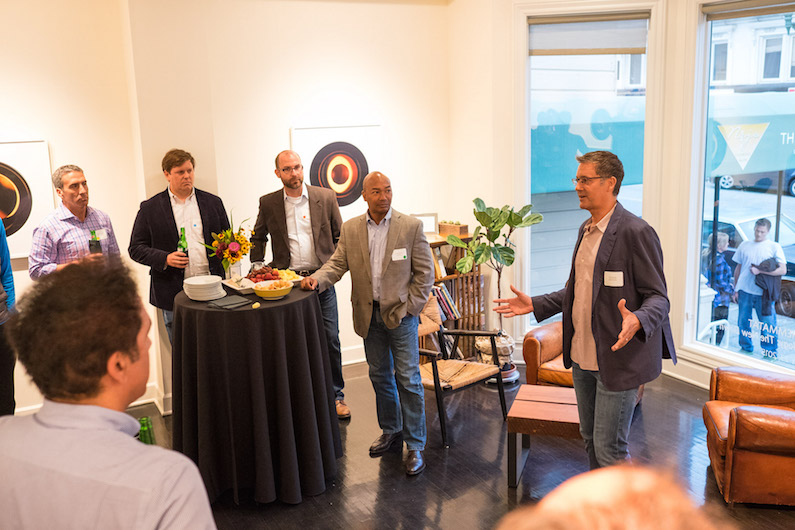
Paul Caswell of Weave the People leads roundtable discussions on bringing intention to your startup culture.
“When I started, I knew what I didn’t want – No ‘us vs. them’ between different disciplines, sales vs. engineering.”
There’s no such thing as a culture-free workplace – it’s just either intentional, or accidental, notes Paul Caswell (FN April’15). He founded Weave the People to create technical tools focused on office culture and engagement, and they work with corporations (latest partner: Comcast) who see connection within their people as key to their bottom line.
“As founders, we get to shape culture the same way we direct products and services,” Caswell says. “It’s who we are when we show up at work – how we work and the environment we invite people to show up to.”
Founders Edge asked a group of founders who’d seen one or more companies through the early stages of growth and fundraising how they learned to make intentional choices about company culture. They shared advice for entrepreneurs who are starting or reevaluating a company’s core values on:
- how culture starts before your company does
- mentoring that can start you on the right foot
- the key actions that make cultural intentions a reality
- and how to scale a strong start once a company grows and changes
“It’s the same team – the same company,” Domingo Guerra (FN May ‘12) says. He spent his first 11 months at mobile security startup Appthority on a team with just his two cofounders. Before they raised more than $10 million for this venture, they’d come from huge companies – Intel, McAfee, Brocade – and they all had war stories to share of what they DIDN’T want to build in their new environment.
“We got to learn what’s painful, what’s enjoyable – and that shaped things unintentionally,” Guerra reflects. Appthority’s culture had started before the company did – in what the founders brought to the table. “Trust and teamwork go hand-in-hand. Difficult decisions make you go back to your core values.”
The learning process as founders stumble, test and confirm who they are and what the company will be doesn’t happen in a vacuum. Or at least, it shouldn’t, Garza saw as he grew from young founder in Mexico to serial entrepreneur.
“I’ve learned in my time as an entrepreneur how many challenges we have – but so many people have helped me on the way and are willing to lend a hand,” Garza says.
“I try to be as open as I can because I think it is the right thing to do. I feel that it is my duty to pay back, and share my experiences and thoughts.”
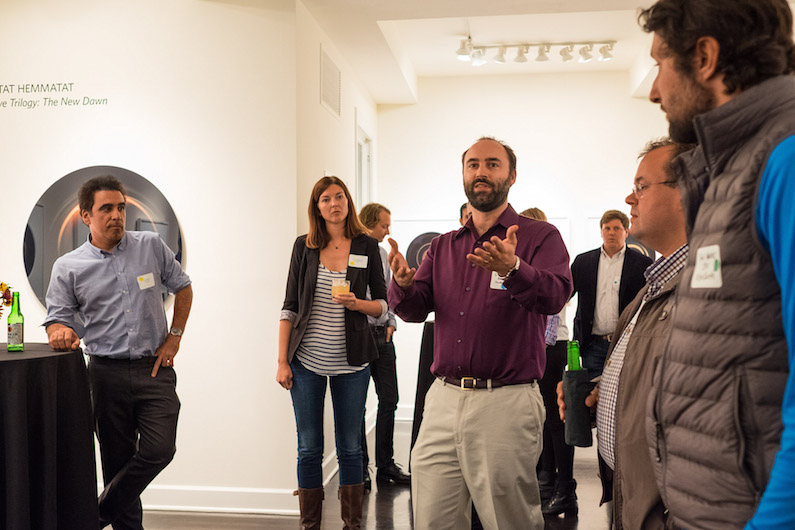
FOUNDER TURNED VC DAN HOFFER OF TANDEM CAPITAL SHARES PERSPECTIVE ON STARTUP CULTURE FROM THE OTHER SIDE OF THE TABLE.
“Find a distinctive culture where you can talk with openness and trust about the issues you’re facing – a place where there’s just founders.”
Founders Network member-turned-Investor Dan Hoffer, who recently joined Tandem Capital, says he thinks entrepreneurs seek out communities like Founders Network for the honesty possible in private, direct mentorship. He has direct experience – he cofounded Couchsurfing, which scaled – while bootstrapped – to over 3 million members and then raised a $22.6 million in two funding rounds.
“At this point, the mainstream media has documented the pressure everyone is under to say things are going great,” Hoffer says. A leader has to find places that allow for frank analysis of what does and doesn’t work as you’re building a work world.
Once you get the founders talking, off the record, about what works and what sucks, what do they say about building culture? FN’s funded founders shared a list of key ingredients that each seemed small – sometimes downright humble. But each small action flags the overarching values behind it, and add up to workplaces where you want to be.
Sharing tactical moves that have worked (and not), founders listed three areas they’ve learned to target – not always easily:
- Planned rituals, however small
- Appreciation
- Transparent Communication
Modest traditions build to powerful effects
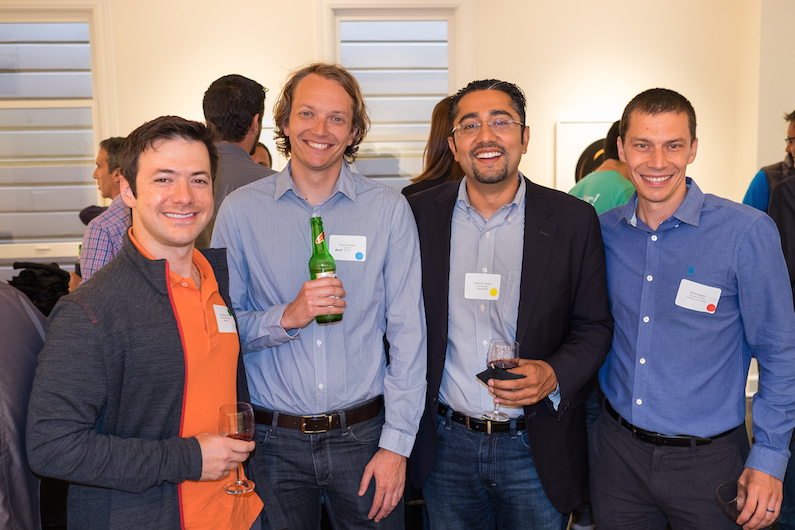
Domingo Guerra (Left) shares how small things can make a big difference over time.
“Put birthdays on a recurring calendar. You do it once on hire, and don’t really have to think about.”
“Things that are small build up,” Guerra says. “It doesn’t have to be really structured, but you make a habit out of it.”
Guerra’s team at Appthority, which grew from 3 to almost 30, gathers around a long table for lunch a few times a week. They hold “brown bag” lunch events when someone has a skill to share – one week, a coworker brought in a pile of locks and taught picking to the team.
Not every startup looks like a Silicon Valley office, with kegerators and team shirts. Garza’s Mexican team doesn’t really identify that way (and investors frown on it, he noted) – but that doesn’t mean Kinedu lacks company culture. They just made their own.
“We rent out a classroom at the university as our office space, and we have students randomly walking in and asking what we’re doing,” Garza says. “We painted the walls with idea paint so you can draw on them, there’s music playing in the afternoons, and outside people playing soccer or having talent shows. It’s different than the traditional office space, and we really like it.”
The only way to care about people is to know their lives – to talk to them
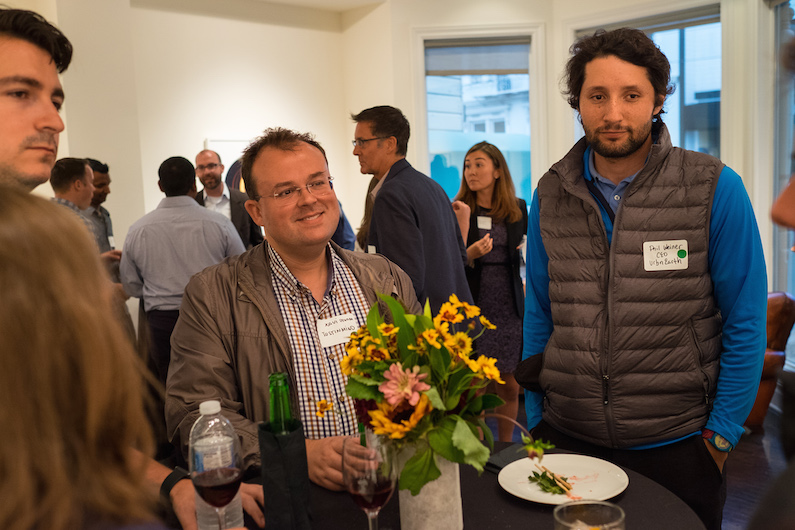
Javier Renom Portet (Center) shares his experience fostering startup culture among a distributed team.
“This is not just saying something appreciative – it’s looking again and challenging the person being seen. It creates a culture of ‘we can do more. I see this in you, bring it out.”
Xavi (Javier) Renom Portet (FN April ‘13) put empathy above all other values when he weighed in on the culture conversation from his experience founding Justinmind, a web and mobile prototyping tool with over 1 million users.
“Have real interest – if you don’t care, you will have a problem keeping people happy. All the other things are corporate culture,” Portet says. “If you really care about someone, the other person feels that.”
Paul Caswell – the Weave The People founder – experienced this as a technical team leader before he turned entrepreneur. He saw first hand how product can fall apart if there’s a cultural blindspot.
“As an enterprise architect, I was working on $20 million projects with great architecture, and many of them were failing. I realized it wasn’t a technology issue, it was a people issue,” he says.
“I was focused on the technical vision – if we have clear roles and responsibilities, what’s stopping us? No one had taken time to really see the people,” Caswell says. “It’s not an easy thing to appreciate somebody, and it’s actually quite humbling for the person looking.”
Several of the FN founders and partners who participated in the culture conversation say they build structured time into stand-ups and one-on-ones to talk directly about not just performance, but value and recognition. As Caswell puts it:
Transparency builds trust
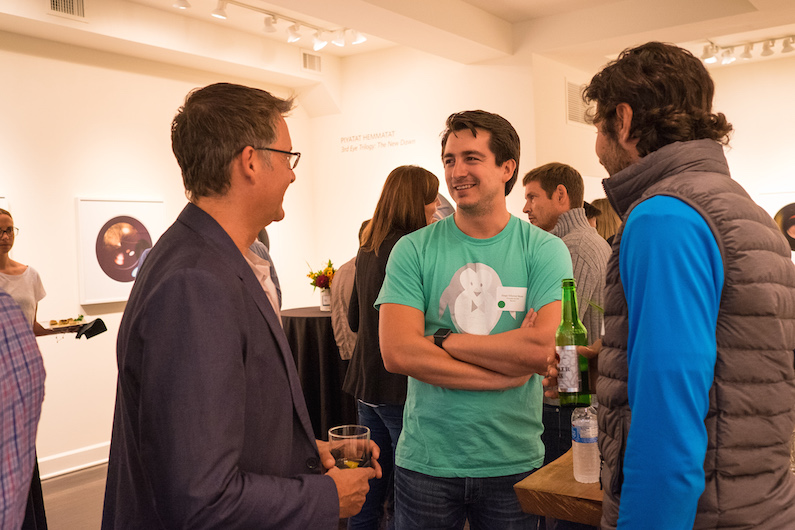
Diego Villarreal Meyer (Center) of Banter! emphasizes the importance of a strong relationships among the founding team.
“If we hadn’t had mutual respect we wouldn’t have made it through. There’s never enough communication – sharing emotions and thoughts.”
“When we ran out of runway, we were hanging from a very thin thread and had to rely on each other,” Diego Villarreal (FN August ‘14) recalls of early days as a founder. His startup Banter!, is a nightlife app.
There’s no second chance at trust with customers, either, Guerra added. Working on a security startup at Appthority, putting data protection first requires turning down opportunities that are too risky – even when it is painful. Openly acknowledging the values that drive your decision making gives context to a tough decision.
“People follow and react to how the founder is doing things,” Garza says of his team in Mexico. “It’s not just setting the goals and compensations, but making your actions accessible to the organization.”
“I try to share a lot of what we are doing with my direct reports and ask them how they would react. It’s a mentoring process, but also an alignment – what are the right goals, and how we’re going to get there.
To scale culture as you grow, use teams as culture units
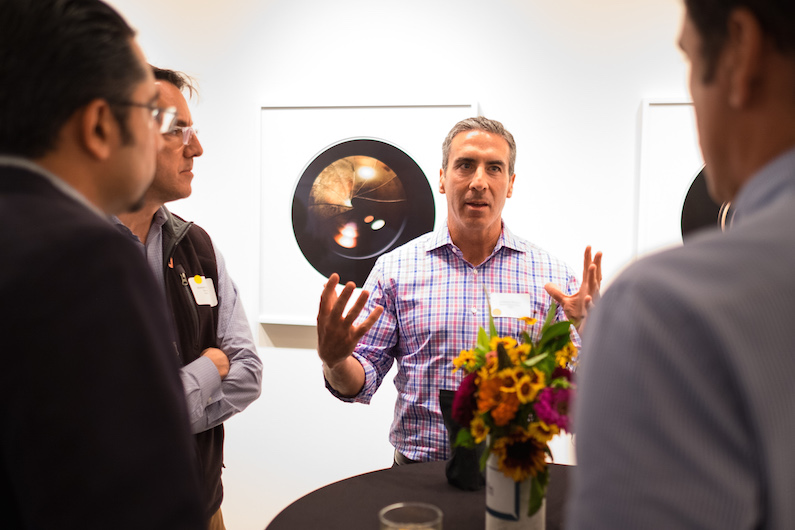
Laurence Morgan of CBRE explains how office space and culture interact.
“There are some core values that never change, and they start to show themselves as your company progresses.”
Human nature doesn’t change even as companies transform – people want to feel valued, responsible, and as though they have opportunity to grow. But how a leader prioritizes those values changes as a company scales from a few founders to multiple teams and even multiple cities or countries.
Maintaining culture on a team by team basis is the only way to scale, as Portet (who founded Justinmind) sees it – and companies have made their reputations for it, Google for the better, and Oracle for the worse.
Very early stage companies sometimes effectively outsource some of that culture-building by finding incubators, investors and coworking spaces that offer day-to-day impact as well as funding.
At Hoffer’s seed stage investment company, Tandem, invites companies to use their office space for a 6-month period dedicated to collaboration. In-house growth hackers, designers and product people work with the founders – as do Tandem’s investors, who take on only 3 companies at a time.
“Culture within small teams differs and that’s great – you want sales to be driven to get the customer, and technology to be driven by quality,” Garza says. “The same principle applies to starting teams in different countries.”
You want a local team with local knowledge, who knows how to navigate the landscape and market.
“You have to give them the freedom to do things differently,” Garza says, “But ultimately they’re doing it for the same reason – working towards one goal. For us, that’s to serve parents better than everybody else.”

